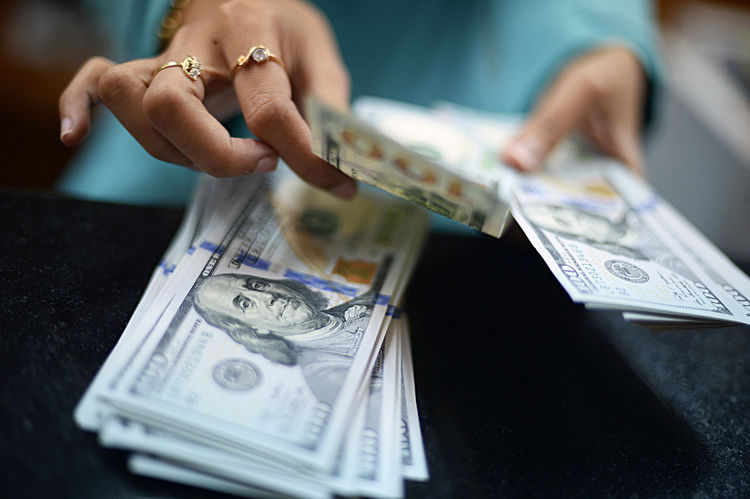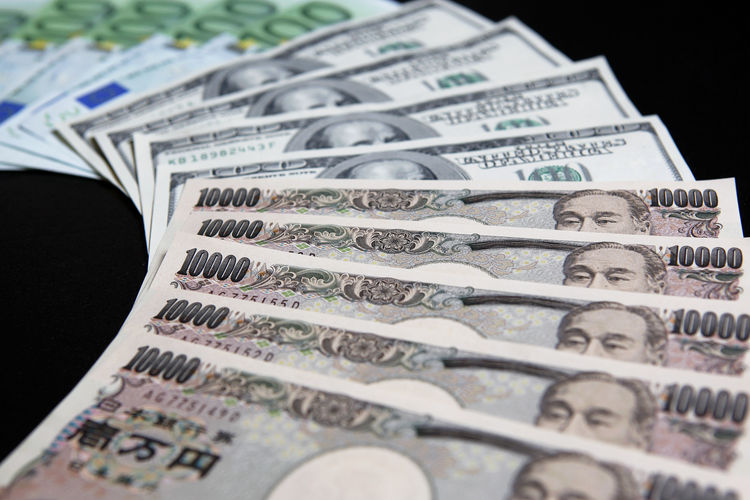- DSS Raids Forex Dealers in Lagos, Abuja
Operatives of the Department of State Security on Thursday arrested some unregistered Bureau De Change operators in Lagos and Abuja.
Also raided by the DSS operatives were registered BDCs operators who were accused of selling the dollar above N400.
The development, forex dealers said, forced some of the BDC operators to seek means of selling foreign currencies in their possession, especially dollars, pounds and euros at stipulated rates.
A licensed BDC operator in Abuja, Alhaji Yusuf Rabiu, told the News Agency of Nigeria that the raid on the registered operators made some of them to reach an agreement on how much the various foreign currencies should be sold for.
On Wednesday, the DSS had raided the offices of some BDC in Lagos and Abuja, arresting operators selling above the stipulated exchange rate.
The DSS operatives posed as end-users who came to purchase dollars from the BDCs. After surveying the market for exchange rate offerings, they arrested some BDC operators who sold above the Central Bank of Nigeria’s stipulated rates.
Rabiu said, “On Monday, the EFCC called so many licensed BDC operators. The issue is that they feel we are unnecessarily hiking the rates. But it’s not our fault.
“Right now, their focus is on our business; they have been calling us one by one and we don’t want problems. That is why we have agreed to have a fixed rate for now. After the raid in Lagos, the Abuja operators met and agreed on a fixed rate.”
Another trader told Reuters that security agents visiting the BDC operators told dealers not to sell dollars for more than N395.
“We’ve stopped buying dollars from just anybody that walks into our shops due to the harassment from security agents and a directive from our association,” said a dealer, who spoke on condition of anonymity.
The President, Association of Bureau De Change Operators, Alhaji Aminu Gwadabe, said the association had this week inaugurated committees to ensure that members complied with its regulations on exchange rates.
He said ABCON was working with the CBN to ensure that speculators, illegal operators and errant members were dealt with.
Gwadabe added that licensed dealers had agreed with the central bank and the security agencies to enforce a rate of N390 to N400 to the dollar.
“The issue of naira depreciation has been narrowed to the activities of speculators and we have decided, with the cooperation of both the central bank and the security agents, to enforce a new rule on pricing,” he said.
But economic and financial experts said the approach of arresting the operators would not work.
A currency analyst at Ecobank Nigeria, Mr. Kunle Ezun said, “We cannot control the naira value or exchange rate by fiat. It is beyond that. Until there is enough liquidity in the foreign exchange market, we cannot do that. The DSS raiding the BDCs will only add to the problem. That is not how to stabilise or bring down the exchange rate.
“Exchange rate control cannot come by fiat. When the CBN began the flexible exchange rate policy in June, a lot of things were done. We need to look into this clearly. The issue at the market now is lack of liquidity and this cannot be addressed in the short-term. We should allow a full-fledged interbank rate; transparency and price discovery are key elements of the market.”


 Forex4 weeks ago
Forex4 weeks ago
 Naira3 weeks ago
Naira3 weeks ago
 Billionaire Watch3 weeks ago
Billionaire Watch3 weeks ago



 Naira4 weeks ago
Naira4 weeks ago






 Naira3 weeks ago
Naira3 weeks ago


 Naira2 weeks ago
Naira2 weeks ago






 Naira2 weeks ago
Naira2 weeks ago
 Commodities4 weeks ago
Commodities4 weeks ago





















